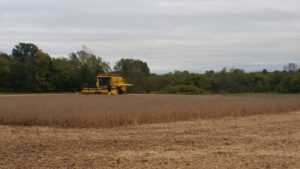 Ask any farmer and they’ll tell you farming is a lifestyle. A farm is also a business, and one that warrants a careful estate and farm succession planning for the future. But when you’re dealing day-in and day-out with keeping your farm alive and kicking, it’s easy to make these mistakes when planning for the future.
Ask any farmer and they’ll tell you farming is a lifestyle. A farm is also a business, and one that warrants a careful estate and farm succession planning for the future. But when you’re dealing day-in and day-out with keeping your farm alive and kicking, it’s easy to make these mistakes when planning for the future.
Waiting too long.
Many a farmer has complicated the future of their business because they didn’t set an estate plan while they could. Waiting too long—and not having a plan at all—can result in higher costs and taxes for the next generation of your farm.
The moral of this mistake is DON’T WAIT. Start your business succession planning by discussing the future of your business with all parties that are affected by the transition—including parties that are not interested in carrying on the business. This could include all your children and heirs, future partners’ spouses, and any other loyal long-term employees INVESTED in the company. Once the next generation to run the farm has committed to carrying on the business (and proved their commitment), and all parties are comfortable with the future partnership, it’s time to start estate planning with an experienced attorney who can guide you (and has guided other farmers) through the process.
Not communicating.
One of the most common mistakes made when going through business succession is a lack of clear communication between all the parties involved. Both present and future owners need to be clear about their expectations during the transition. Communicate clearly and openly with everyone involved, even those family members who are not interested in running the farm. If there are issues that need to explained fully (especially technical information), leave it to the estate planning professional to bring everyone together and explain the details. This simple step can help everyone understand and communicate together, and help eliminate the chance of hard feelings and misunderstandings later.
Playing favorites.
It sounds easy not to play favorites, but dividing your farm estates is never a cut-and-dry process, especially when you have heirs that are interested in running the farm and others that are not. Be honest and open with each other, both as a family and as business partners. Make sure everyone is on the same page about the future of your farm, and be clear that everyone is receiving a share—just in different ways (farm assets versus non-farm assets).
Thinking you don’t need it.
Even if the assets of your farm consist primarily of animals and land, don’t think that your farm is not worth enough to need a business succession plan. Even if you consider yourself a small farm, the value of your property is probably worth more than you think and the combined value of your land, building, and machinery warrants a legal business succession plan.
Not having all the parts of your farm succession plan in place.
Farm succession planning is about more than appointing the successor or successors of your business. A solid business succession plan ensures 1) the transition of the farm to new parties is set and legally sound; 2) financial details are handled to ensure the succession of partners occurs smoothly; 3) that the process is easier should any partners pass away while in business.
Assuming you can do it all yourself.
To ensure that all legal and financial aspects of your farm succession and estate plan are anticipated and documented, consult an experienced attorney. Every estate plan is unique; there is no “one size fits all” plan because the organization, finances, and parties involved are different. An attorney can customize your plan to fit where your farm is at now, and where you want it to be in the future.
